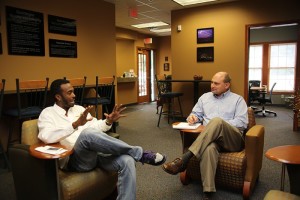Why Commoners Should Continue Doing What They re Doing Video on the Three Estates in France
What should I "Start, Stop, Continue" doing?
 May 25, 2016
May 25, 2016

Whether you're a leader in a billion dollar corporation, small business owner, or simply looking to improve a relationship with a loved one, a great tool for doing so is the process of "Start, Stop, Continue". It seems so simply; yet, many don't take the time to ask these three basic questions:
"When it comes to my leading of this team, what should I "start" doing that I'm not presently doing? What should I "stop" doing that's hurting the team? And, what do you see me doing well and I should "continue" doing?"
Given a level of trust in relationships, the responses to these questions can be very powerful. For example, here's some feedback a leader received from his team when asking:
- Start – More visibility of team rankings; end meetings on time; communication of clear expectations; life
balance – lose health or family and it won't benefit anyone - Stop – Minds always working, take a break sometimes; running over on meeting times; take knees out
from under people in front of team members; creating an environment of "ambushing", stick to agenda
giving time to prepare; jamming schedule with meeting; not trusting team members; being so hard on yourself - Continue – Team meetings/calls (reevaluate frequency/video/time); passion balanced with reasonable
expectations; one-on-ones with no agenda; check in at end of day without agenda; new growth
focus; fresh prospective; corporate ground level new ideas, stay involved in corporate relationships
Now, many would acknowledge some of this feedback is not easy to receive. However, great leaders love feedback rich environments. Often, with this type of feedback, minor tweaks can be made in the short term that long term might have completely derail the leader and their team.
While the example is stated in the context of a leader and their team, this process can be used nearly anywhere. Think about it in the context of a marriage. If you asked your spouse, "Honey, what should I "start" doing that I'm not presently doing to improve our relationship? What should I "stop" doing that takes away from our relationship? What's working well in our relationship that I should "continue" doing?" Wow, think of the power this would have in strengthening your marriage! I would share my wife's feedback; however, that might be a bit too personal (ha ha).
Why is it that we don't ask these "basic" questions? Well, at a heart level, we lack trust and fear vulnerability. We have a "fear" of what other people think and how it might damage our self esteem. We're wired as very insecure beings that easily have our identity shaken. Even that tough guy who you think has it all together battles insecurity at the core of his being that some feedback may be difficult to hear.
Then, on the flip side, we don't want to "hurt someone's feelings" by offering constructive feedback. Or, we "fear" retribution; it's just too risky to tell others what we really are thinking. Then, even if we offer feedback, will it facilitate any positive change. Again, we lack trust and fear vulnerability.
Trust and vulnerability carry with them a high level of risk that most aren't willing to take. As shared in my blog The Anatomy of Trust referencing Brene Brown's comments:
Charles Feltman had the "most beautiful definition of trust," which was "Trust is choosing to make something important to you vulnerable to the actions of someone else." Brown continues, "Feltman says that distrust is what I've shared with you that is important to me is not safe with you."
Again, this is risky business!!!
So, how do we create the level of trust and vulnerability that cultivates a feedback rich environment? Well, you can always start by asking the questions remaining open to the feedback. As you ask and respond positively over time, than you will begin to create this type of environment. It really could be as simple as scheduling a monthly check in on "stop, start, and continue". 6-12 months down the road, you'll will be amazed at the strides you're making.
Given this, you're still missing out on likely the best 10%. As I shared in my blog, "they're likely missing out on the best 10%", it normally takes someone like myself to step into your circumstances and facilitate the process. First, I'm able to extract feedback in a manner which minimizes risk and, then, I'm able to coach through the feedback. Doing so accelerates the process of building trust which results in much more highly effective relationships and performance.
When will you schedule a time for your next "start, stop, and continue" conversation?Would you like to further discuss how I might help? Go to my Coaching page to learn more about the various ways I coach individuals and teams.
Source: https://www.chrisarnold.org/start-stop-continue/
Post a Comment for "Why Commoners Should Continue Doing What They re Doing Video on the Three Estates in France"